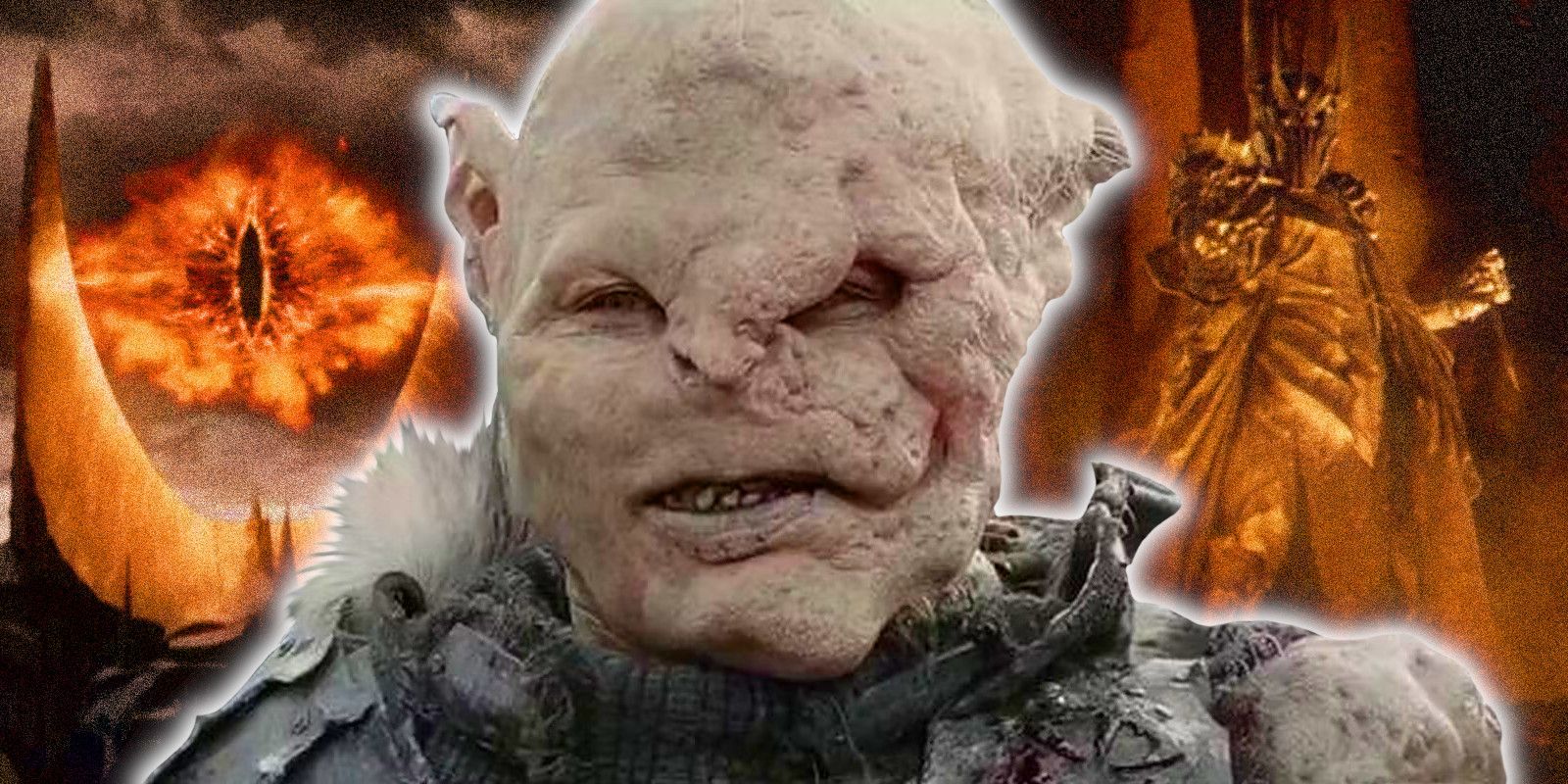
All of this raises the question of why the Orcs would follow such a cruel and uncaring leader. Prime Video’s The Lord of the Rings: The Rings of Power has explored this topic throughout its first two seasons. In this series, the Orcs’ leader is not Sauron but an original character named Adar. Unlike Sauron, Adar seems to care for his followers, and he rightly believes that the Dark Lord’s rule would be detrimental to their well-being. The series has not revealed why or how the Orcs will end up joining forces with Sauron, but J. R. R. Tolkien’s novels did. Most Orcs in The Lord of the Rings hated Sauron but had no other choice than to follow him, though he did provide some genuine benefits to his soldiers.
Sauron Ruled the Orcs With an Iron Fist
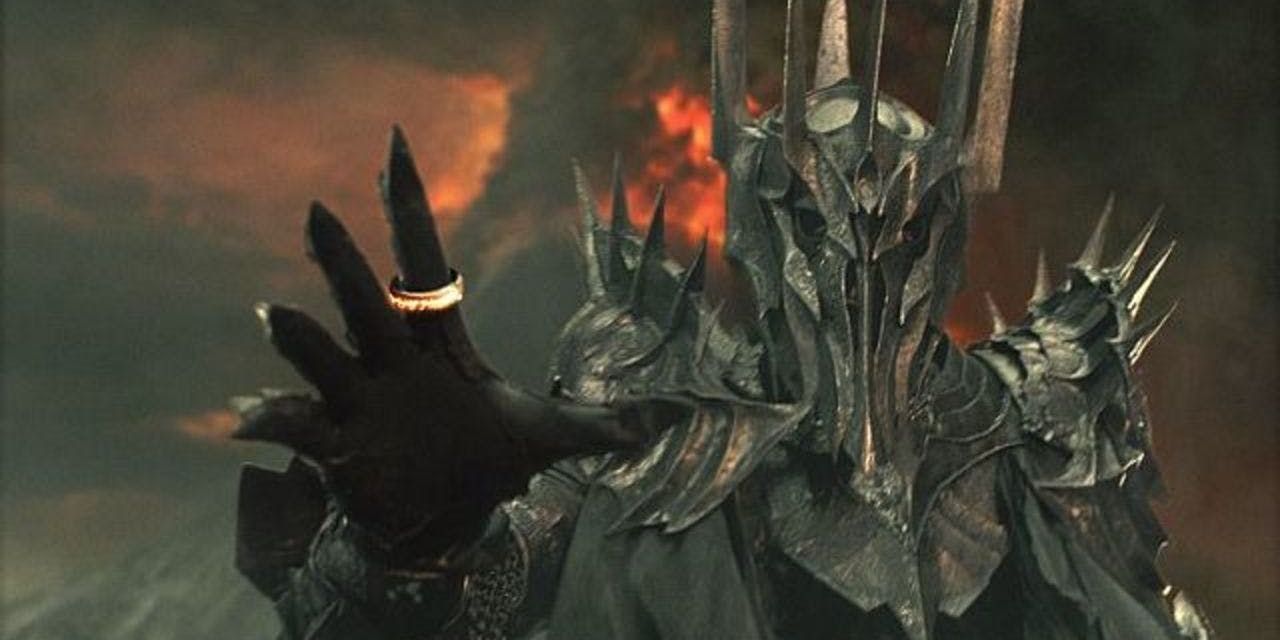
It was not just Sauron whom the Orcs feared but also his higher-ranking servants. The Orcs of Minas Morgul were particularly frightened of the Witch-king of Angmar and his fellow Nazgûl. In the same chapter, Gorbag said, “Those Nazgûl give me the creeps. And they skin the body off you as soon as look at you, and leave you all cold in the dark on the other side.” The Orcs even helped enforce Sauron’s tyrannical will upon one another. When Frodo and Sam snuck into Mordor in the chapter “The Land of Shadow,” they witnessed the treatment of Sauron’s minions firsthand. Most of the Orc soldiers were “smaller breeds being driven unwilling to their Dark Lord’s wars,” but the larger Orcs threatened them with whips to keep them in line: “You’ll get as much lash as your skins will carry when you come in late to your camp.” Any Orcs who did not follow Sauron’s orders would pay with their lives — or worse. But fear was not the only way that Sauron controlled the Orcs.
Sauron Twisted the Orcs’ Minds
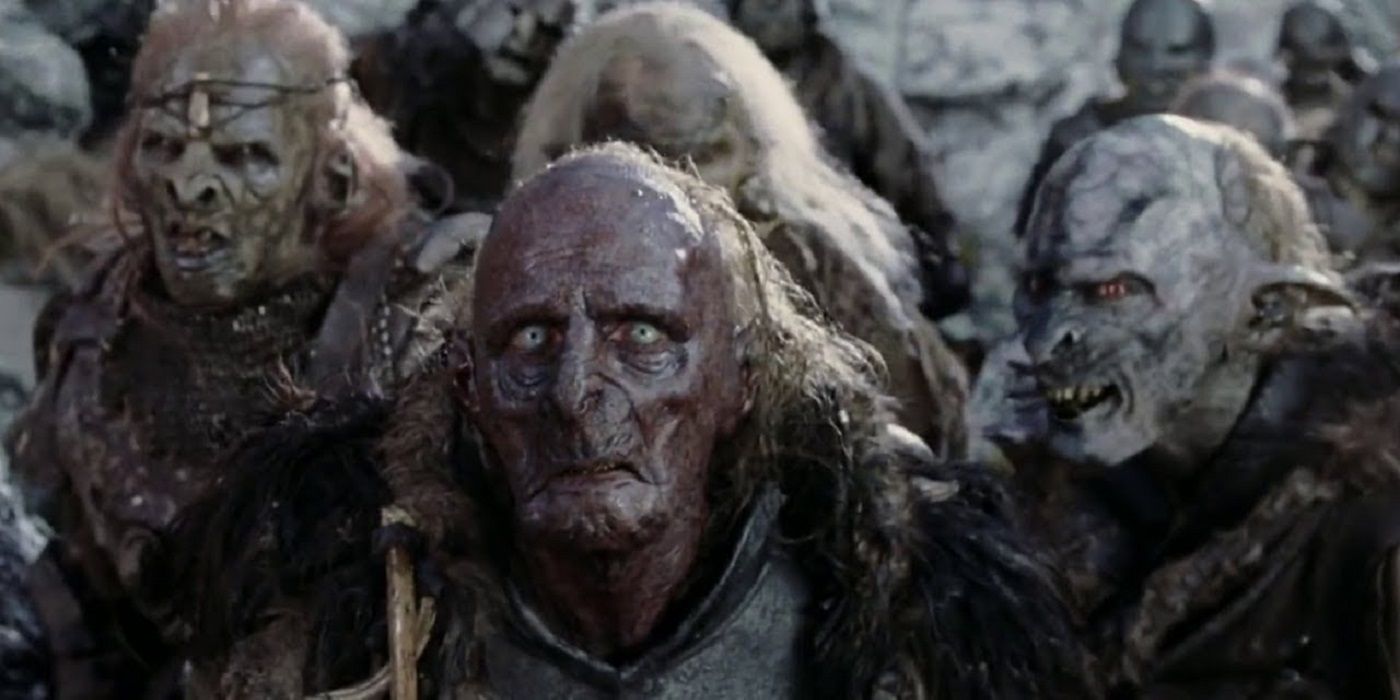
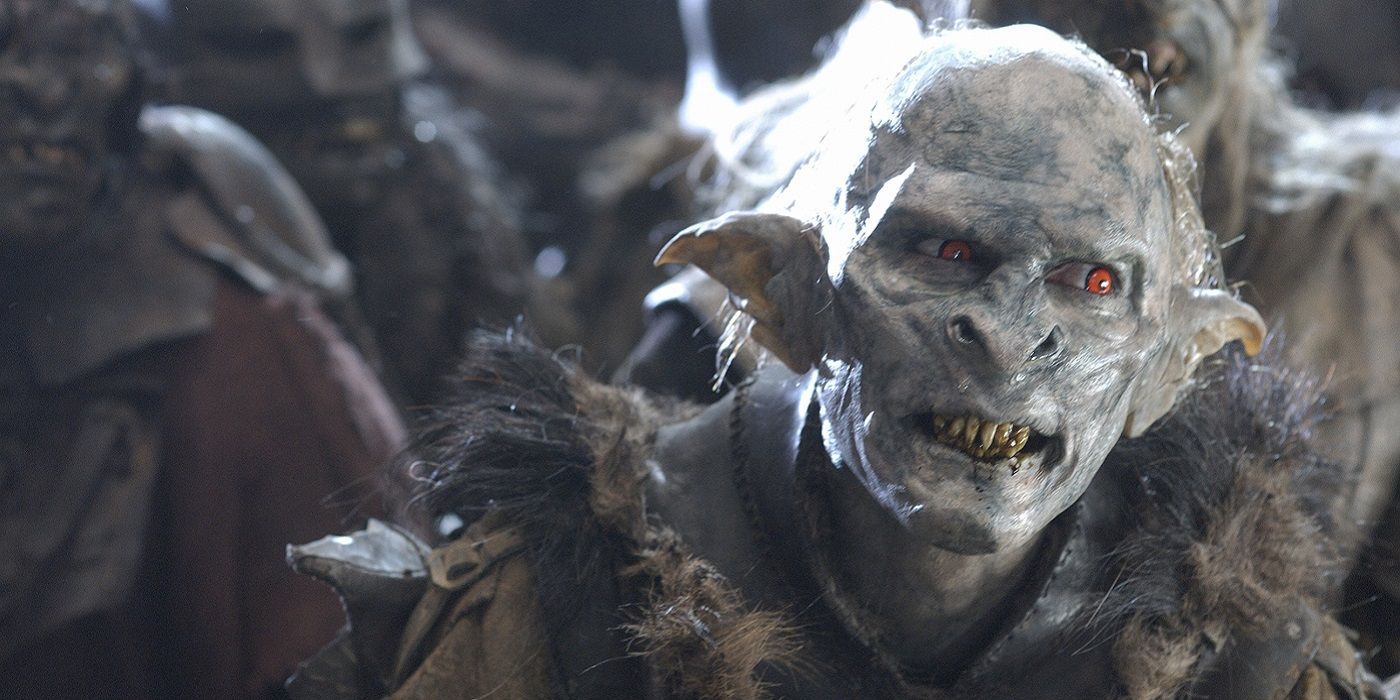
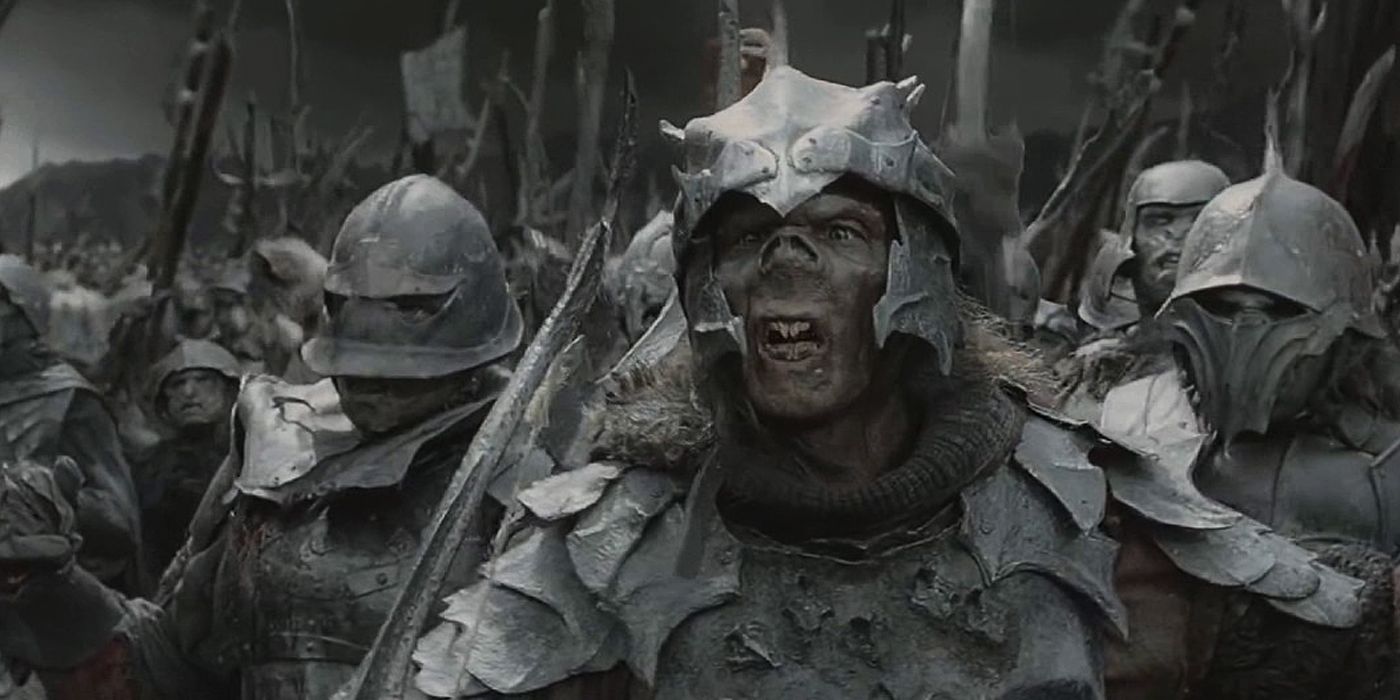
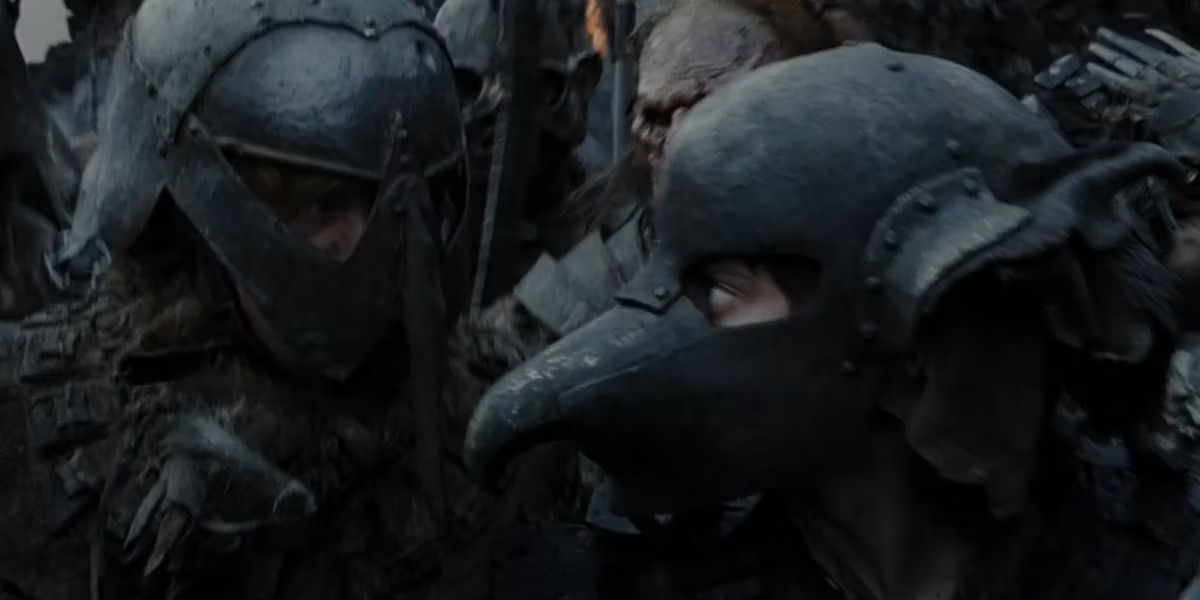
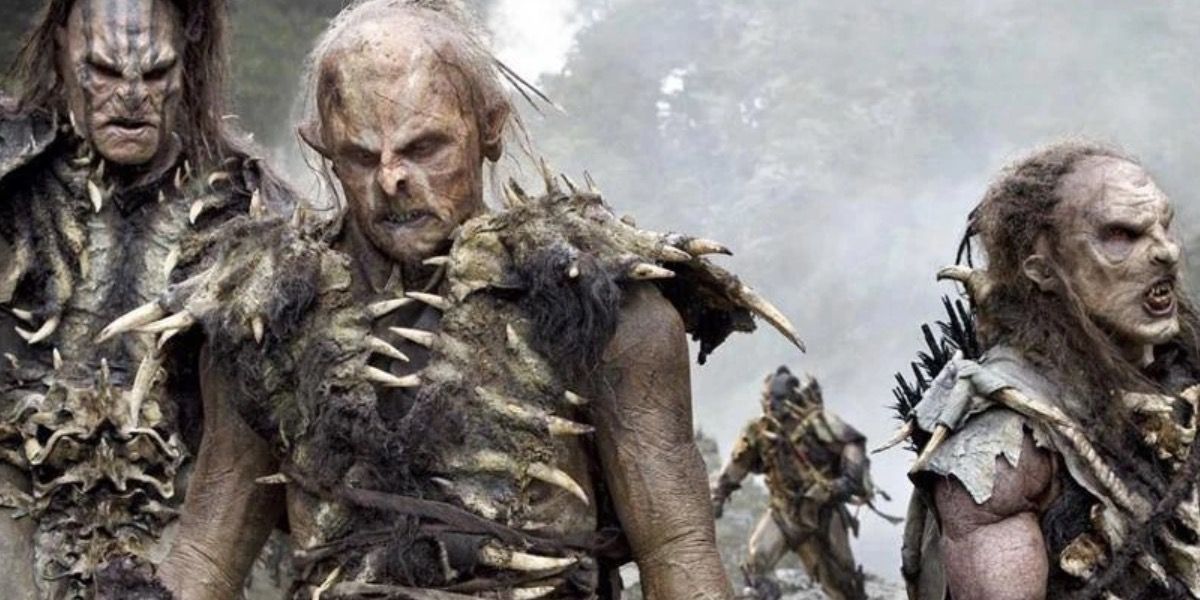
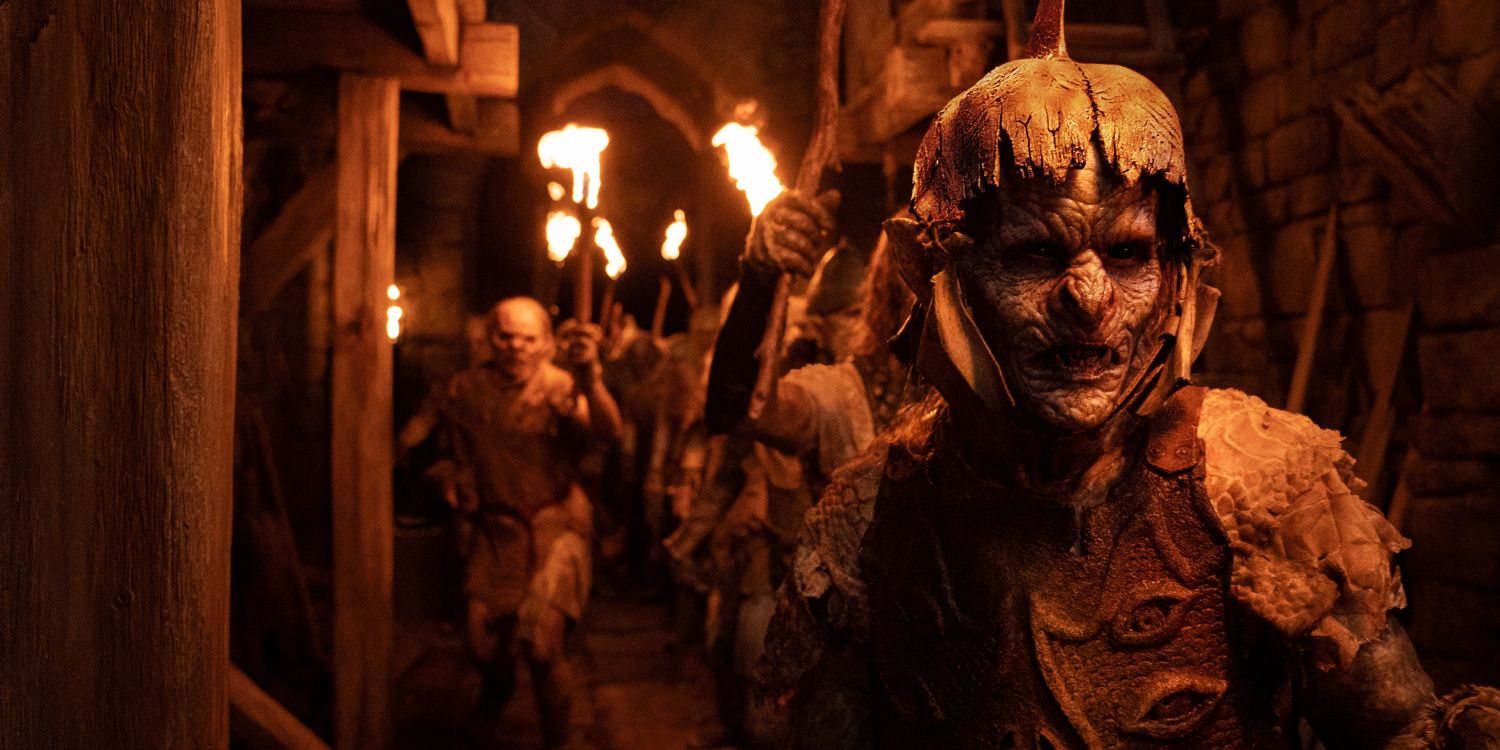






Tolkien changed his mind about the Orcs’ origins over the course of his life, but one thing remained constant: Sauron’s master, Morgoth, was responsible for their existence. He was like a god to them, and they were literally made to serve him. Since Sauron was Morgoth’s successor, he was like a god to them as well. Whenever Orcs used pronouns to refer to Sauron in The Lord of the Rings, the words were capitalized, just as they are in the Bible when they refer to God. Tolkien was a devout Catholic, so this stylistic choice was undoubtedly intentional. Most of The Lord of the Rings‘ Orcs were born into Sauron’s army and died in Sauron’s army. Ever since their creation, servitude to a Dark Lord was all that they knew.
Further, Sauron was able to control the Orcs’ minds to an extent. According to Morgoth’s Ring, “Sauron indeed achieved even greater control over his Orcs than Morgoth had done. He was, of course, operating on a smaller scale, and he had no enemies so great and so fell as were the Noldor in their might in the Elder Days.” This made the Orcs more loyal to Sauron than many of the Men who served him. After Sauron’s defeat in the War of the Ring, the Orcs did not know what to do with themselves. When the tower of Barad-dûr fell in the chapter “The Field of Cormallen” from The Return of the King, Tolkien wrote,
As when death smites the swollen brooding thing that inhabits their crawling hill and holds them all in sway, ants will wander witless and purposeless and then feebly die, so the creatures of Sauron, orc or troll or beast spell-enslaved, ran hither and thither mindless; and some slew themselves, or cast themselves in pits, or fled wailing back to hide in holes and dark lightless places far from hope.
Without Sauron, the Orcs barely acted like sentient beings, proving how powerful his presence in their minds had been. Yet Sauron’s influence on the Orcs in The Lord of the Rings was not wholly negative.
Many Orcs Hated Sauron — But They Hated His Enemies More
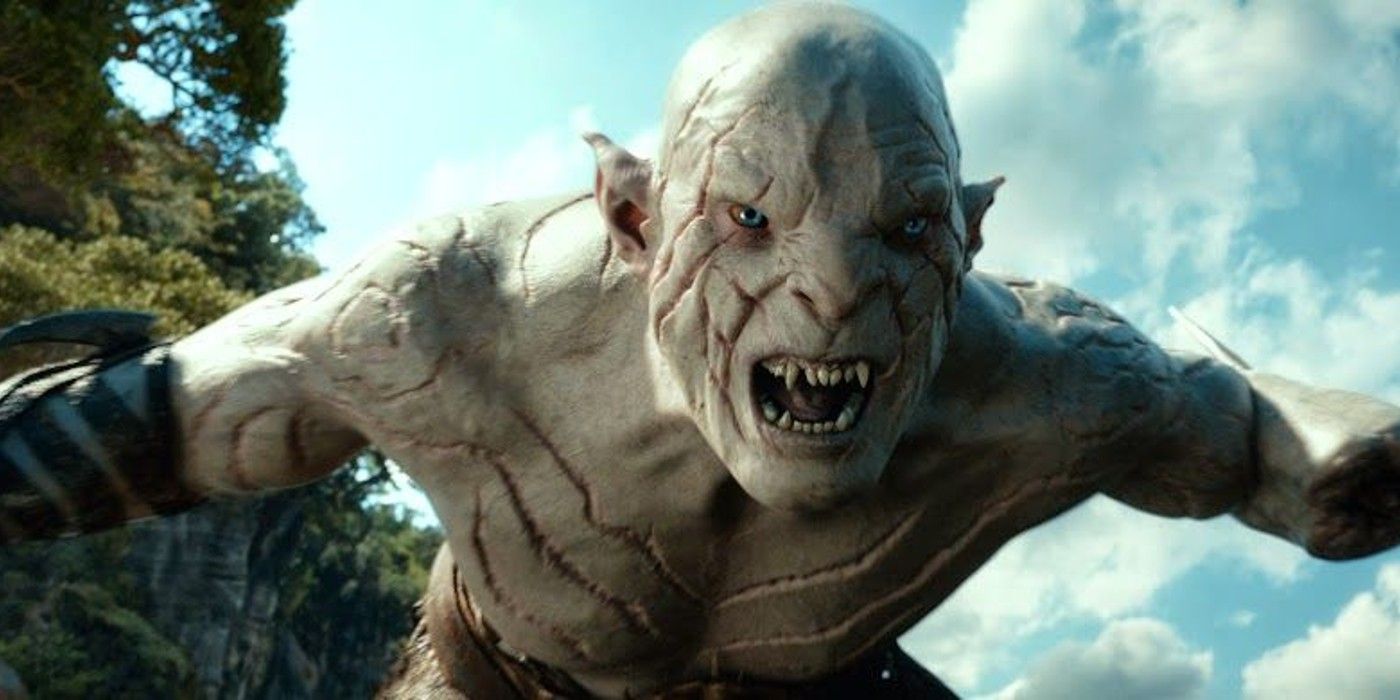
This leads to another reason that the Orcs would want to follow Sauron: he protected them. On an individual level, he had no qualms about killing or torturing them, but on the whole, he wanted to keep the race of Orcs alive and well so that they could continue to serve as his minions. Though he mistreated them, he gave his Orcs food, shelter, and other bare necessities that they needed to survive. More importantly, the Orcs shared common enemies with Sauron; they despised Men and Elves. Unless Sauron won the war, the Orcs expected that the Free Peoples of Middle-earth would exterminate them. In “The Choices of Master Samwise,” Gorbag and Shagrat discussed the possibility of Sauron’s defeat, and the former explained why he hoped that such a thing would not happen: “Don’t forget: the enemies don’t love us any more than they love Him, and if they get topsides on Him, we’re done too.”
This was due in part to lies that Sauron had fed them about the cruelty of their enemies. He convinced his minions, both Men, and Orcs, that the Free Peoples of Middle-earth would do unspeakable things to them if they were captured, and he encouraged them to die rather than let that happen. According to Morgoth’s Ring, “Sauron in time managed to unite them all in unreasoning hatred of the Elves and of Men who associated with them; while the Orcs of his own trained armies were so completely under his will that they would sacrifice themselves without hesitation at his command.” The Orcs were blissfully unaware that Sauron was likely to dispose of them once he no longer needed them. They saw the Dark Lord as the lesser of two existential threats to their kind.





